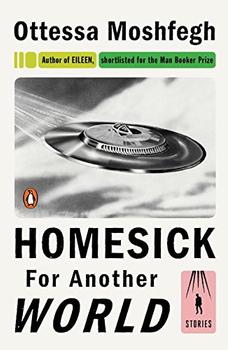Summary | Excerpt | Reviews | Beyond the book | Read-Alikes | Genres & Themes | Author Bio

Stories
by David Means"One of the most talented writers of short fiction in America." - James Wood, The New Yorker
Following the publication of his widely acclaimed, Man Booker-nominated novel Hystopia, David Means here returns to his signature form: the short story. Thanks to his four previous story collections, Means has won himself an international reputation as one of the most innovative short fiction writers working today: an "established master of the form." (Laura Miller, The Guardian). Instructions for a Funeral - featuring work from The New Yorker, Harper's, The Paris Review, and VICE - finds Means branching out beyond the explorations of violence and trauma with which he is often identified, prominently displaying his sly humor and his inimitable way of telling tales that deliciously wind up to punch the reader in the heart.
With each story Means pushes into new territory, writing with tenderness and compassion about fatherhood, marriage, a homeless brother, the nature of addiction, and the death of a friend at the hands of a serial-killer nurse. Means transmutes a fistfight in Sacramento into a tender, life-long love story; two FBI agents on a stakeout in the 1920s into a tale of predator and prey, paternal urges and loss; a man's funeral instructions into a chronicle of organized crime, real estate ventures, and the destructive force of paranoia.
Means's work has earned him comparisons to Flannery O'Connor, Alice Munro, Sherwood Anderson, Denis Johnson, Edgar Allan Poe, Anton Chekhov, and Raymond Carver but his place in the American literary landscape is fully and originally his own.
Means approaches his characters' tensions and torments with refined, yet digressive prose. Depicting fights, affairs, illnesses, addictions, deaths and murders, this collection critiques how people remember things and explores why we need stories. For readers who are drawn to the cutting, focused form of short stories and contemporary, unconventional voices in the medium, Instructions for a Funeral is a worthy read...continued
Full Review
(669 words)
This review is available to non-members for a limited time. For full access,
become a member today.
(Reviewed by Jamie Chornoby).
Throughout his collection of short stories, Instructions for a Funeral, David Means shows the ways in which people's recollections of the past change over time. Learning new information, reconsidering ethical stances and changing self-perceptions contribute to characters tweaking their memories to better fit new narratives about their lives and the lives of those around them. In this way, people's memories can be a product of the narratives they choose, rather than an objectively true recall of events. Psychology provides us with some insight into how memory affects the ways in which people understand the world around them.
 Memory refers to the structures and processes the brain uses to store and recall information. According to Richard ...
Memory refers to the structures and processes the brain uses to store and recall information. According to Richard ...
This "beyond the book" feature is available to non-members for a limited time. Join today for full access.

If you liked Instructions for a Funeral, try these:

by Deborah Eisenberg
Published 2019
A much-anticipated collection of brilliantly observant short stories from one of the great American masters of the form.

by Ottessa Moshfegh
Published 2017
An electrifying first collection from one of the most exciting short story writers of our time.
Heaven has no rage like love to hatred turned, Nor hell a fury like a woman scorned.
Click Here to find out who said this, as well as discovering other famous literary quotes!